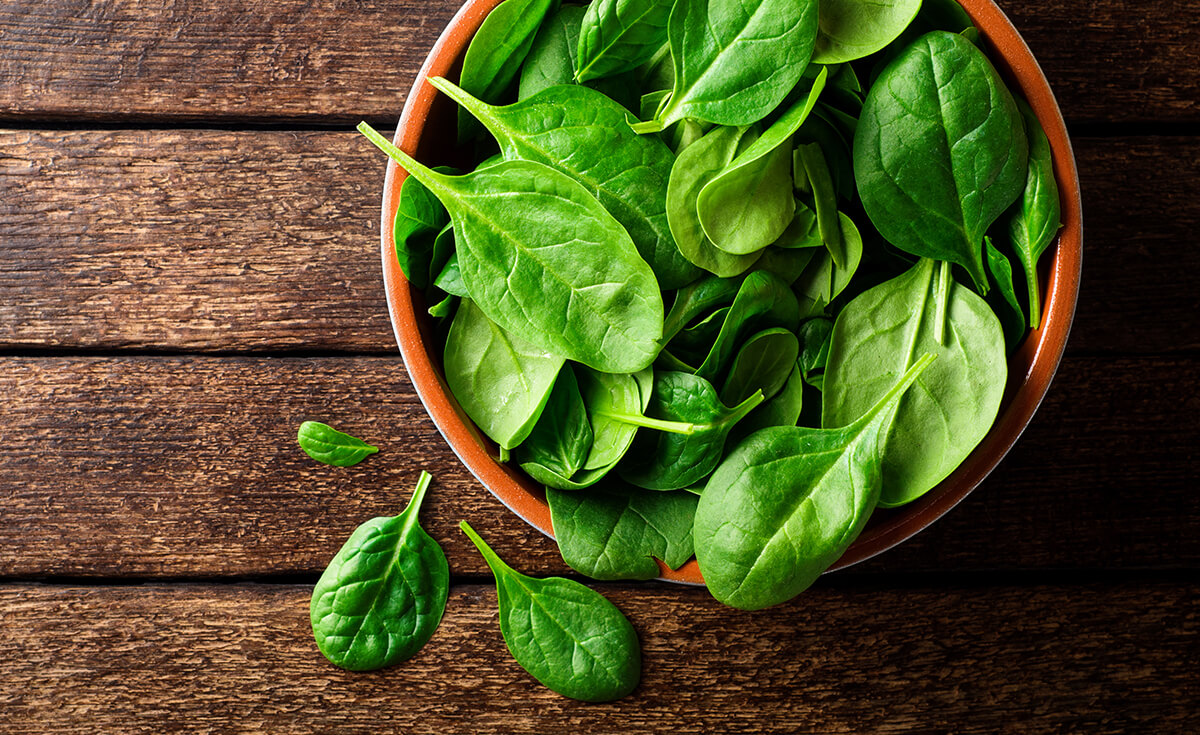Is Spinach Good for Dogs? Exploring the Benefits and Risks of Feeding Spinach to Your Pup
As pet parents, we want what’s best for our dogs, especially when it comes to their diet. Spinach is a well-known healthy choice for us, but what about for our canine companions? Can dogs eat spinach and enjoy the same benefits from this leafy green?
In this article, we’ll dive into the benefits and potential drawbacks of including spinach in your dog’s diet. Join us as we unravel whether spinach should make its way into your pup’s bowl!

The Health Benefits of Spinach for Dogs
Spinach is not just a superfood for humans, it’s also rich in essential nutrients that can benefit your dog’s health. This leafy green is a treasure trove of vitamins and minerals that play a vital role in various aspects of canine health.
In this section, we’ll explore how spinach can improve your dog’s overall health and wellbeing. We’ll also take a look at how it supports their digestion, strengthens their bones and joints, nurtures their skin, and enhances their vision.
Vitamins and Minerals for Overall Health
Spinach is a powerhouse of vitamins and minerals that are essential for your dog’s overall health. It’s rich in vitamin A, which boosts the immune system, and vitamin K, which helps with healthy blood clotting.
It’s also a great source of B-vitamins, which are important for converting food into energy. Plus, the iron in spinach plays a key role in preventing anemia by helping to produce healthy red blood cells.
Your dog can also benefit from the antioxidants in spinach, such as vitamin C and beta-carotene. These help neutralize harmful free radicals in their body, supporting a strong immune system and aiding in disease resistance.
Incorporating spinach into your dog’s diet offers much more than a tasty snack – it’s an excellent way to boost their overall health!
Digestive, Bone, and Joint Support
Spinach is more than just a source of vitamins and minerals, it’s also beneficial for your dog’s digestive health. High in fiber, this leafy green facilitates smooth digestion and helps maintain regular bowel movements. This makes it especially helpful for dogs that need assistance with digestive regularity.
Spinach is also great for dogs that are dealing with bone and joint issues. It’s a good source of calcium and supports the development of strong and healthy bones. In addition, its anti-inflammatory properties can alleviate discomfort associated with conditions like arthritis, offering relief for your dog.
Improved Skin and Vision
Spinach plays a key role in maintaining your dog’s skin and eye health. Rich in vitamins A and E, it helps keep their coat glossy and their skin in great condition. These vitamins are essential for skin repair and bolstering the immune system, offering protection against various skin issues and irritations.
For eye health, spinach provides lutein and zeaxanthin, two potent antioxidants. These nutrients are known for their effectiveness in supporting vision health, particularly in dogs. Including spinach in your dog’s regular meals can be a proactive step in preventing age-related eye problems, helping to maintain their vision clarity.
Considerations When Feeding Spinach to Dogs
Although spinach offers a variety of health benefits for dogs, there are several considerations to keep in mind if you’re thinking about adding it to their diet. In this section, we’ll explore crucial factors such as moderating portion sizes and understanding your dog’s individual dietary needs.
Moderation is Key
When introducing spinach to your dog’s diet, moderation is key. Although it’s rich in nutrients, too much spinach can be tough on your dog’s digestive system and overall health.
Maintaining balance in your dog’s diet is crucial. While spinach is a beneficial addition, it should be complemented with a variety of other nutritious foods. This approach helps provide a well-rounded diet that keeps your dog healthy and content.
As a general rule, dogs can safely enjoy spinach in small, well-portioned amounts as part of a balanced diet. Giving spinach in moderation is important to prevent stomach upset. Treats, including spinach, should only constitute a small part – about 10% – of your dog’s diet, with the majority coming from a well-balanced dog food.
The appropriate serving size of spinach depends on your dog’s size, with different breeds having varied dietary needs. Always consult your veterinarian when considering adding spinach to your dog’s diet to ensure that portion sizes are tailored to their individual health requirements.
Avoid Canned Spinach
Wondering if it’s okay to let dogs eat canned spinach? While spinach can be a nutritious addition to your dog’s diet, it’s crucial to avoid canned spinach. This is because it often contains high levels of sodium and other preservatives that are not suitable for dogs.
Excessive sodium intake can lead to health issues such as dehydration, kidney damage, and high blood pressure in dogs. Additionally, the canning process may deplete some of the essential nutrients found in fresh spinach, making it less beneficial for your pet.
Opting for fresh or frozen spinach allows you to better control the overall nutritional content while avoiding potentially harmful additives.
Potential Risks for Dogs with Specific Health Conditions
If your dog has certain health conditions, you might want to think twice about giving them spinach. This leafy green can be harmful to dogs that are at risk of kidney stones or have kidney disease, due to its high levels of oxalates.
Also, dogs with sensitive stomachs or digestive problems might not handle spinach well because of its fiber content. It’s always a good idea to talk to your vet before adding spinach to the diet of a dog with kidney or digestive issues.
Remember, when your dog has specific health concerns, you need to be careful about what you feed them. Getting advice from a veterinarian is the best way to make sure their diet is safe and suitable for their needs.
How to Safely Feed Your Dog Spinach
Feeding dogs spinach can be a great way to boost their health, but it’s important to do it the right way. In this section, we’ll show you how to prepare spinach safely and determine the right serving sizes for your furry companion.
Plus, you’ll discover tips on how to seamlessly blend spinach into your dog’s regular meals, ensuring they get the full benefits of this nutritious green. And for those who prefer ready-made solutions, we’ll also cover how to choose high-quality dog foods that already include spinach.
Proper Preparation and Serving Size
Begin by washing the spinach well to eliminate any dirt or pesticides. Then, chop it into small pieces to make digestion easier for your dog and reduce the risk of choking.
Cooking the spinach, especially by steaming, is advised because it’s easier for dogs to digest than raw spinach and preserves most of the nutrients. Letting dogs eat raw spinach could lead to digestive issues such as diarrhea or vomiting.
As mentioned earlier, moderation is key when serving your dog spinach. According to PetMD, serving sizes range from 1/4 teaspoon for smaller dogs to 1 tablespoon for larger ones. Remember, these are just guidelines, and individual needs may vary.
Including cooked spinach in your dog’s regular meals, either mixed with their food or as a topping, is a great way to safely introduce this healthy vegetable.
Incorporating Spinach into a Balanced Diet
Thinking about adding spinach to your dog’s diet? Here are some more quick tips to help you get started:
- Ease in. Introduce spinach gradually. Start with small amounts to see how your dog likes it and to monitor their reaction.
- Add variety. Mix spinach with other safe veggies to provide a diverse range of nutrients, making your dog’s meals more interesting and nutritious.
- Balance is key. While spinach is healthy, it should complement, not replace, your dog’s main diet.
- Health considerations. Always keep your dog’s unique health needs in mind. Some might need a different approach with spinach, especially if they have specific dietary restrictions or conditions.
By following these tips, you’ll be able to add spinach to your dog’s meals in a way that’s healthy, safe, and enjoyable for them.
Feeding High-Quality Dog Food With Spinach
Feeding your dog high-quality dog food that contains spinach is a fantastic way to enhance their diet with essential nutrients. Recipes like our Earthborn Holistic Meadow Feast incorporate spinach alongside quality proteins like lamb, as well as a variety of superfoods.
At Earthborn Holistic, we tailor our dog food recipes to your pet’s specific needs. Understanding that different breeds and life stages require different diets, we offer specialized options like limited ingredient diets for dogs with particular sensitivities. Our aim is to provide a diet that not only tastes great to your dog but also supports their long-term health and wellbeing.
Key Takeaways
- Rich in nutrients. Spinach enhances your dog’s diet with vitamins and minerals, supporting various health aspects like immunity and digestion.
- Introduce gradually. It’s important to add spinach to your dog’s diet slowly and in small portions to ensure they tolerate it well.
- Avoid canned varieties. Fresh or frozen spinach is preferable due to the high sodium and preservative content in canned options.
- Health condition considerations. Spinach may not be suitable for dogs with specific conditions, particularly those related to kidneys.
- Cook for digestibility. Steaming spinach makes it easier for dogs to digest and absorb its nutrients.
- Complement, don’t replace. Spinach should be an addition to, not a substitute for, the main components of your dog’s diet.
- Veterinary advice is key. Consulting with a vet is essential, especially for dogs with unique dietary needs or health issues.
Are You Ready to Add Spinach to Your Dog’s Diet?
Spinach can be a wonderful addition to your dog’s diet, offering a host of health benefits. However, it’s essential to approach it thoughtfully. Considering factors like your dog’s health, dietary needs, and the best way to prepare spinach, you can make an informed decision.
With the right balance and preparation, spinach can provide nutritional richness to your pet’s meals, enhancing their wellbeing. If you’re considering this leafy addition, remember to do so with care and knowledge of your dog’s specific needs.




